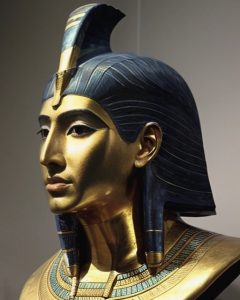Menes, also known as Narmer, was the first pharaoh of the first dynasty in ancient Egypt. He is often credited with unifying Upper and Lower Egypt into one kingdom, thus establishing the Old Kingdom period in Egyptian history. Menes is a figure shrouded in mystery and legend, with many conflicting accounts of his life and reign. According to some sources, he was a powerful ruler who brought peace and prosperity to the land, while others depict him as a ruthless conqueror. Despite the discrepancies, one thing is certain – Menes played a crucial role in shaping the early civilization of Egypt.
Menes is believed to have been born around 3200 BC, during a time when Egypt was divided into two separate kingdoms – Upper Egypt in the south and Lower Egypt in the north. He was a member of the Thinite dynasty, which ruled over Upper Egypt. It is said that Menes inherited the throne from his father, although some sources claim that he overthrew the last king of Lower Egypt, thus gaining control over both regions. Whether through diplomacy or force, Menes succeeded in bringing the two kingdoms together and established his capital at the city of Memphis.
The unification of Egypt was a significant achievement, as it brought together different cultures, traditions, and languages. Menes is often depicted wearing the crown of Upper Egypt on one side of his head and the crown of Lower Egypt on the other, symbolizing his dual rule over the two kingdoms. This dual kingship would continue to be a tradition in ancient Egypt, with pharaohs often being depicted with two crowns.
Menes’ reign was marked by numerous accomplishments, including the construction of temples and monuments, the development of a centralized government, and the establishment of a writing system. He is also credited with introducing the concept of the divine right of the pharaoh, which held that the ruler was chosen by the gods and was the sole intermediary between them and the people. This belief would continue to shape Egyptian society for thousands of years.
Despite his many achievements, Menes’ reign was not without its challenges. He faced rebellions from various regions, and there were also conflicts with neighboring kingdoms. Some accounts even suggest that Menes was killed in a hippopotamus hunt, although the exact circumstances of his death remain a mystery.
Today, Menes is remembered as the first pharaoh and the founder of the Old Kingdom, a period of great prosperity and cultural advancement in ancient Egypt. His legacy lives on in the magnificent monuments and temples that still stand today, and his unification of Egypt remains a testament to his powerful leadership. Menes may be a figure of myth and legend, but his impact on Egyptian history cannot be denied.

